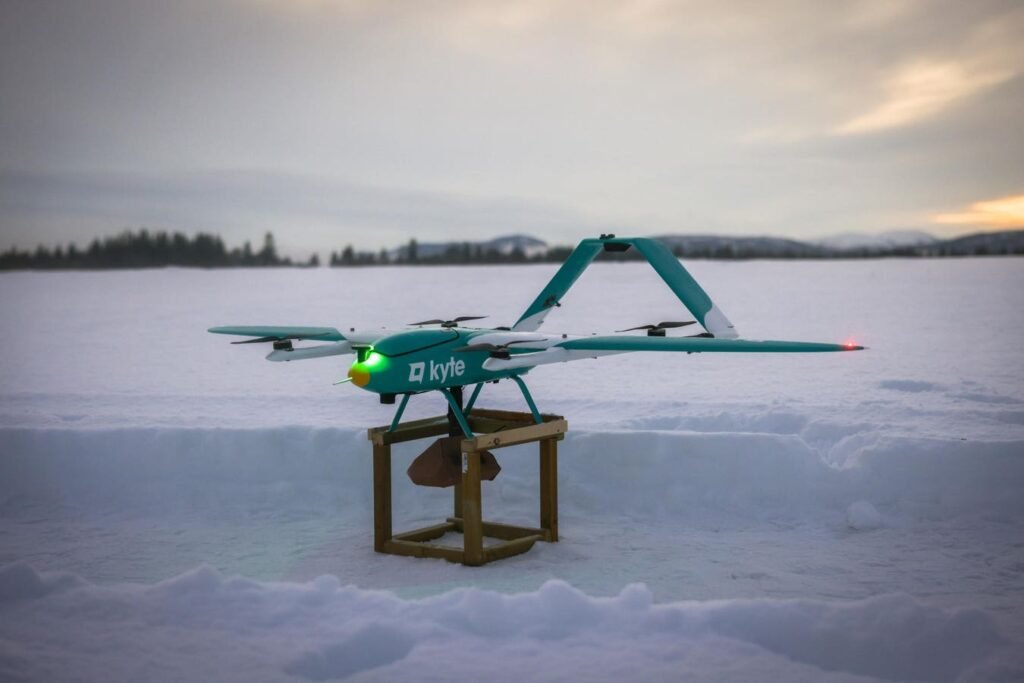Aviant drone in Norway
Aviant, a Norwegian drone delivery startup, is expanding its services to the ski resort of Lillehammer as it plans to extend its drone range.
Lillehammer is a popular location in Norway for skiers, and the expansion there, the company said, will allow it to reach both residents and tourists with food, grocery and medicine deliveries.
Users can order deliveries through Aviant’s Kyte app. Aviant has partnered with four retailers and local restaurants for drone deliveries using the app. Its drones can carry a payload of 1.5 kg or about 3 lbs, with an average delivery time of 24 minutes.
Drone service Aviant has its roots in the Covid-19 pandemic to deliver medical supplies during quarantine restrictions before moving into consumer goods with an initial trial in the start-up’s home city of Trondheim.
“This represents an important moment for autonomous drone delivery in Europe: when the benefits for consumers and the environment move from the hypothetical phase and into viable real-world application,” said Lars Erik Fagernæs, CEO of Aviant.
Aviant said it has a leg-up on other drone delivery players as it can operate in winter conditions, a familiar feature of Norwegian life. According to the company, its drones can operate in sub-zero temperatures of -15 °C or 5 °F and in strong winds of up to 12 m/s.
“Although some may pity the Norwegians for the difficult weather conditions, these conditions have allowed us to develop a unique drone that was born to withstand the conditions that leave others to land,” added Fagernæs.
“We now offer the world’s longest-distance autonomous drone delivery service, no longer seen as a gimmick limited by distance and climate, but a means of supporting businesses and people while reducing emissions. We are planning an imminent launch beyond Norway.”
Elsewhere in Europe, Irish drone delivery company Manna operates in its home market of Ireland with plans to expand to other European countries, while Wing, the Alphabet-owned drone delivery company, also operates in Finland and Ireland.
Drone delivery has shown a lot of promise over the past decade, but has had many stops and starts as the industry tries to find the right product-market fit.
According to Fagernæs, this tipping point for drone delivery has been reached, making the business more viable.
Drone delivery startups and advocates are also quick to point out that drones will be more environmentally friendly than ground transportation with Aviant claiming that its drones have 99% fewer emissions than cars.
Fagernæs started Aviant together with Herman Øie Kolden and Bernhard Paus Græsdal. All three are former MIT students.
The start-up has raised more than $3 million in funding, most recently with public funding from Innovation Norwaywith other backers including Luminar Ventures and Bring Ventures.
